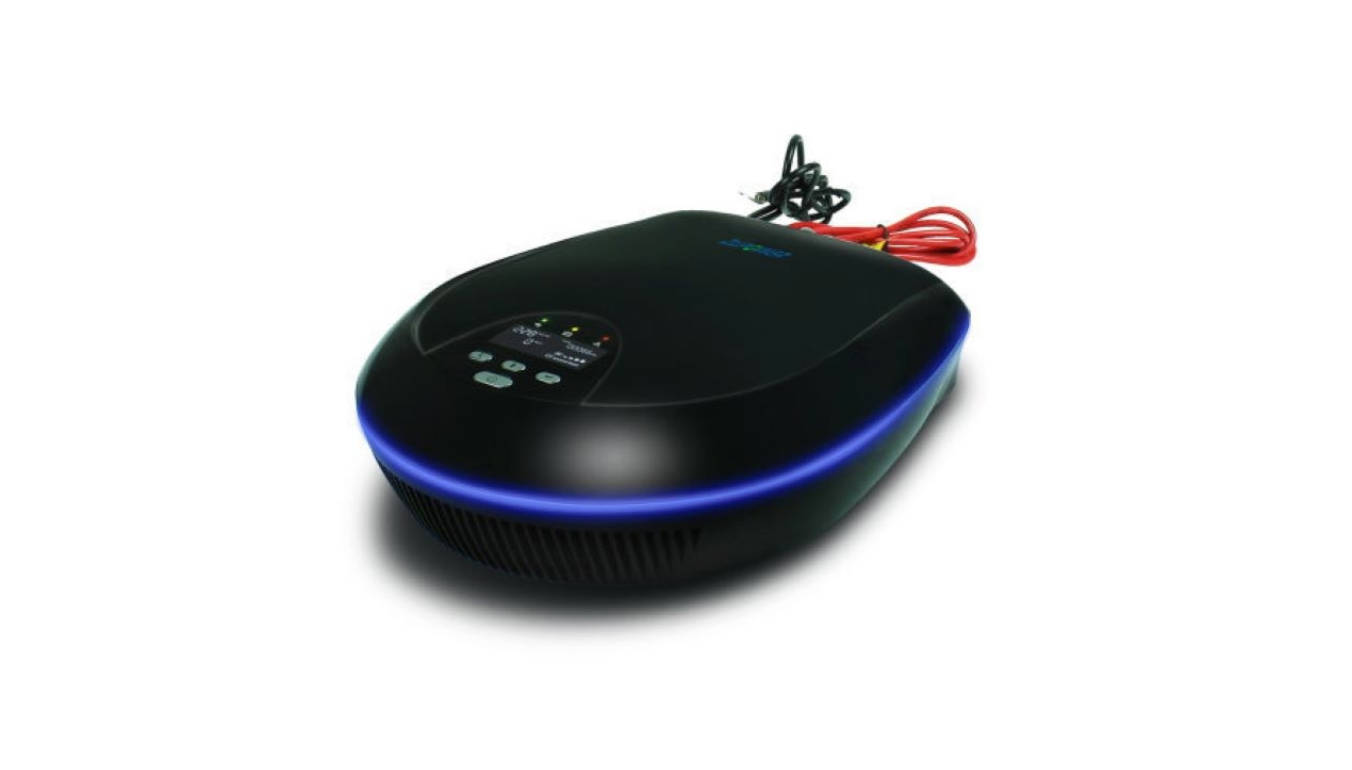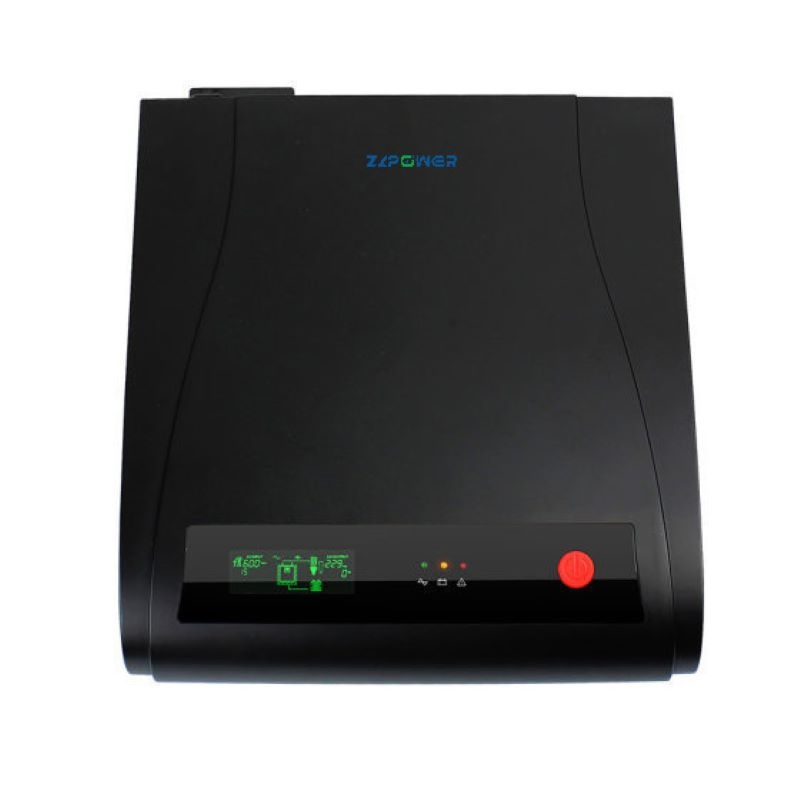

The hybrid solar inverter for off-grid environments converts the current-essentially DC power from solar panels into AC, which lets household appliances and industrial equipment work with good efficiency. Such an inverter is designed to operate outside of a standard power grid infrastructure, either very, very far away or where electricity supply is never relied upon. These inverters have various functions and are capable of adding energy from other sources into the system, like solar panels and batteries, for a continuous and balanced output of current.
Off-grid hybrid solar inverters have several reasons why they are highly favored by households and businesses alike. These are considered to give a sense of independence because users can generate and store their electricity on their own without depending on external power sources. The self-sufficiency accorded by these systems can result in cost savings over time in locations where electricity prices are high. Also, the inverters are designed with features such as MPPT charge controllers that enhance the conversion and storage of solar power with greater efficiency. They are also ideal for areas with scarce or no electricity supply since they can operate autonomously without relying solely on the power grid.
The process of converting energy in grid hybrid solar inverters consists of several important stages; Firstly, the solar panels capture sunlight and change it into DC electricity; this DC power is then sent to the inverter where it gets converted into AC power that can be used with household appliances and other electronic devices effectively and effortlessly thanks to advanced pure sine wave technology which maintains stable output voltage suitable for delicate electronic equipment.
In a setup of an off-grid hybrid solar inverter system, several elements collaborate smoothly together: solar panels for generating power; a battery bank for storing energy; and the inverter for converting DC to AC power output for household usage or grid connection as needed. There are versions with anti-dusk kits to withstand tough conditions and improve durability and efficiency under challenging circumstances. The setup can be tailored to meet energy needs by giving users the option to prioritize essential loads during power outages.
Off-grid hybrid solar inverters are a choice for powering homes in remote areas or places that often face power outages at home settings. They help residents keep vital services like lighting and refrigeration running smoothly in case of grid failures. Battery-independent features in some models make these systems highly efficient even without a connected battery, enhancing their flexibility. Further enabling homeowners to navigate through unexpected power disruptions effectively.
Hybrid solar inverters designed for industrial use offer a reliable solution to keep operations running smoothly during power outages or in areas with unreliable electricity supply. Industries such as agriculture can greatly benefit from these systems by maintaining the operation of essential equipment, like irrigation pumps and refrigeration units. Furthermore, companies aiming to lessen their impact can incorporate these inverters into their sustainability efforts.
In summary, grid hybrid solar inverters mark a step forward in renewable energy technology by providing dependable power options that meet a variety of requirements in different industries and sectors. By combining energy sources and improving the conversion of energy mechanisms processes, these devices offer users improved versatility and management over their energy usage. As the worldwide need for friendly energy solutions grows rises, these groundbreaking tools are set to have a more significant impact, in influencing our future energy landscape.
When choosing a solar inverter, for off-grid use it‘s important to assess its performance metrics to make sure it suits your energy requirements well. Key indicators to consider are the efficiency of the inverter—and how efficiently it turns DC power from panels into usable AC power. Efficient inverters are preferable as they reduce energy wastage during conversion. Another crucial factor is the inverter‘s power capacity; it should match the combined load of appliances and devices it will power. Furthermore, it‘s important to take into account how well the inverter can manage sudden power surges, especially if you intend to use it for devices that need a starting current.
When selecting a grid hybrid solar inverter, budget plays a crucial part in the decision-making process. It‘s not just about the cost but also considering installation expenses, maintenance costs, and potential savings from lower electricity bills over time. Opt for inverters with functionalities such as MPPT solar charge controllers, which might be pricier initially but could result in bigger savings in the long run through efficient utilization of solar power. Additionally, take into account the warranty and customer support options provided by the manufacturer, as these factors can influence the value and practicality of your purchase.
Setting up off-grid hybrid solar inverters involves an approach to guarantee efficient operation and safety measures are in place throughout the installation process. This procedure includes the arrangement of panels and their connection to the inverter unit, along with the incorporation of a battery storage system if necessary. Ensuring wiring and grounding is crucial to avoid any electrical risks that may arise. It is recommended to enlist the services of installers who know the specific regulations and standards governing solar power setups in the area.
Ensuring the upkeep of off-grid hybrid solar inverters is crucial for their long-term performance and effectiveness. Regular maintenance tasks involve inspecting connections for any signs of corrosion or damage and verifying the functioning of batteries if they are in use. Additionally, it is important to clean solar panels to uphold their efficiency. Certain models are designed with built-in dusk kits that boost durability in challenging environments, leading to reduced maintenance requirements. Maintaining up-to-date firmware can also enhance performance and tackle any potential issues proactively.

ZLPOWER provides a selection of off-grid hybrid solar inverters tailored for different uses. Our offerings are recognized for their smart design that incorporates cutting-edge technologies, such as pure sine wave technology. Among their standout models is the PVG Off Grid Hybrid Solar Inverter that includes an MPPT charge controller to effectively manage DC power from solar panels.
The dedication of ZLPOWER to excellence shines through their compliance with regulations – attaining certifications like CE and UL showcases their focus on top-notch products that are dependable and uphold quality standards for both residential and commercial use in demanding settings.
ZLPOWER caters to a range of customer preferences, by providing customizable choices and setting low minimum order quantities (MOS). They aim to offer prices without compromising on quality, striving to deliver products that support sustainable energy solutions and enhance overall quality of life.